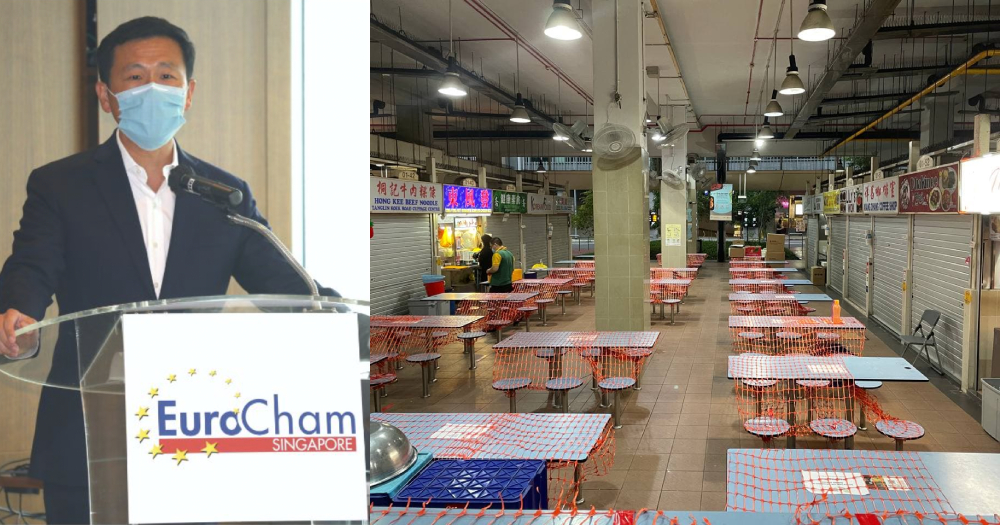Follow us on Telegram for the latest updates: https://t.me/mothershipsg
Singapore's attractiveness to the global community stems from the city-state's ability to adjust its approach to ever-changing realities, as illustrated in how it handled the Covid-19 pandemic, health minister Ong Ye Kung said.
"People value and love Singapore not because we adopt a laissez-faire attitude about anything, let alone public health."
"This is why we took the measures we did, including painful ones, so as to keep the country safe from Covid-19," Ong said during a closed-door dialogue with members of the European Chamber of Commerce (Singapore).
"If we had opened up recklessly, we would not be Singapore anymore. Our experience of Covid-19 would have resembled New York’s or London’s. People would be asking to leave Singapore, not asking to return."
The explanation of Singapore's approach to controlling the pandemic — which included restrictions on international travel — was accompanied by assurances from Ong that the country would remain an open economy because the republic is reliant on the world.
Covid-19 restricting borders
The Covid-19 pandemic, he noted, had provided a challenge to Singapore's long-term attractiveness and competitiveness by disrupting its cross-border activities.
As a result of the pandemic, Singapore could not effectively play its role as a hub and key node in the world.
Yet, Ong also outlined some ways that the island had tried to overcome the disruptions.
These included doing whatever was possible to keep supply lines open, facilitating sea crew change in Singapore, finding living arrangements for Malaysian workers who had found themselves stranded in Singapore on short notice, and treating everyone, regardless of nationality, equally during the country's vaccine rollout.
Rising xenophobia
He also noted that Singapore's commitment to its international economic partners had been questioned of late partly due to the domestic debate on free trade agreements like CECA (India–Singapore Comprehensive Economic Cooperation Agreement).
Such discourse had been used by some to "whip up anti-foreigner sentiments and see xenophobia in our society," he said.
Yet underpinning these sentiments, Ong said, were concerns about heightened competition for jobs, over-concentration of manpower in certain sectors, and unfair hiring practices.
He added: "However, we must and will address the genuine concerns of some Singaporeans. As in other advanced economies, globalisation does have downsides."
Trust between government and people
Looking ahead, Ong said Singapore had now "re-activated our transition roadmap" — a plan to live with Covid-19 as an endemic disease that was scuppered by the emergence of the Delta variant among fishmongers here.
This will see a loosening of restrictions on international travel with a vaccinated travel arrangement already announced with Germany and Brunei, and the application window for returning Employment Pass holders and their dependents opened again.
"Today, we are in a new position. Primarily because even without a severe threat of infections and deaths, our population came forward in big numbers to get vaccinated," said Ong.
"This came about because there is strong trust amongst people and between people and government."
The trust, Ong said, was built through the government's consistency of action — guided by, among other things, a long-term perspective.
"As a result, whenever we face challenges, people collectively come together to do their part, even making sacrifices, for the larger good and for the long term."
"That is why throughout the pandemic, Singaporeans were disciplined and socially responsible. I believe we are more united now than before Covid-19 struck."
Follow and listen to our podcast here
Top image from Eurocham (Singapore)'s Facebook page and Karen Lui
If you like what you read, follow us on Facebook, Instagram, Twitter and Telegram to get the latest updates.
